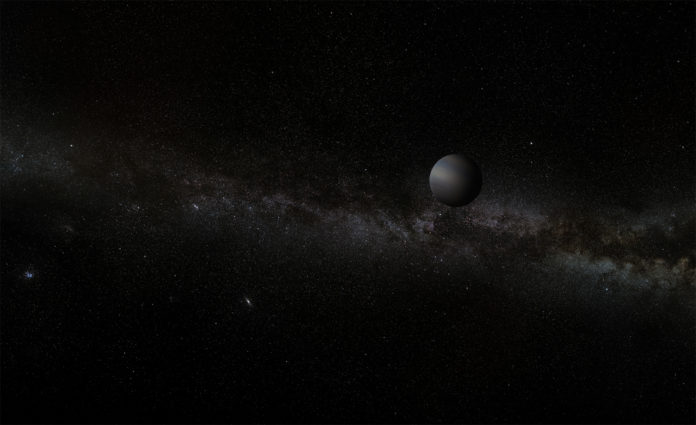How many rogue or free-floating planets wander the depths of space unbound?
Some of these rogue exoplanets have already been discovered in space. In 2018, astronomers detected a giant rogue planet 12 times larger than Jupiter outside our solar system.
Now, using data obtained from NASA’s Kepler Space Telescope, astronomers found tantalizing evidence for a mysterious population of “free-floating” planets in deep space. These rogue planets were found to be not bound to any host star.
They are mainly based on a technique called gravitational microlensing. Using the technique, they discovered four free-floating planets consistent with planets of similar masses to Earth.
A total of 27 short-duration candidate microlensing signals were detected. These signals varied over timescales of between an hour and ten days. Most of these signals were already seen in previous data, but the four shortest events are discoveries.
According to scientists, such free-floating planets may perhaps have formed initially around a host star before being ejected by the gravitational tug of other, heavier planets in the system.
This study was led by Iain McDonald of the University of Manchester, UK, (now based at the Open University, UK).
Co-author Eamonn Kerins of the University of Manchester comments, “Kepler has achieved what it was never designed to do, in providing further tentative evidence for the existence of a population of Earth-mass, free-floating planets. Now it passes the baton on to other missions that will be designed to find such signals, signals so elusive that Einstein himself thought that they were unlikely ever to be observed. I am very excited that the upcoming ESA Euclid mission could also join this effort as an additional science activity to its main mission.”
In future studies, scientists are looking forward to confirming the existence and nature of free-floating planets.
Journal Reference:
- Kepler K2 Campaign 9: I. Candidate short-duration events from the first space-based survey for planetary microlensing, Monthly Notices of the Royal Astronomical Society (2021), DOI: 10.1093/mnras/stab1377
